What's Happening In RE
Year 12 Studies of Religion

What's Happening In RE
Year 12 Studies of Religion
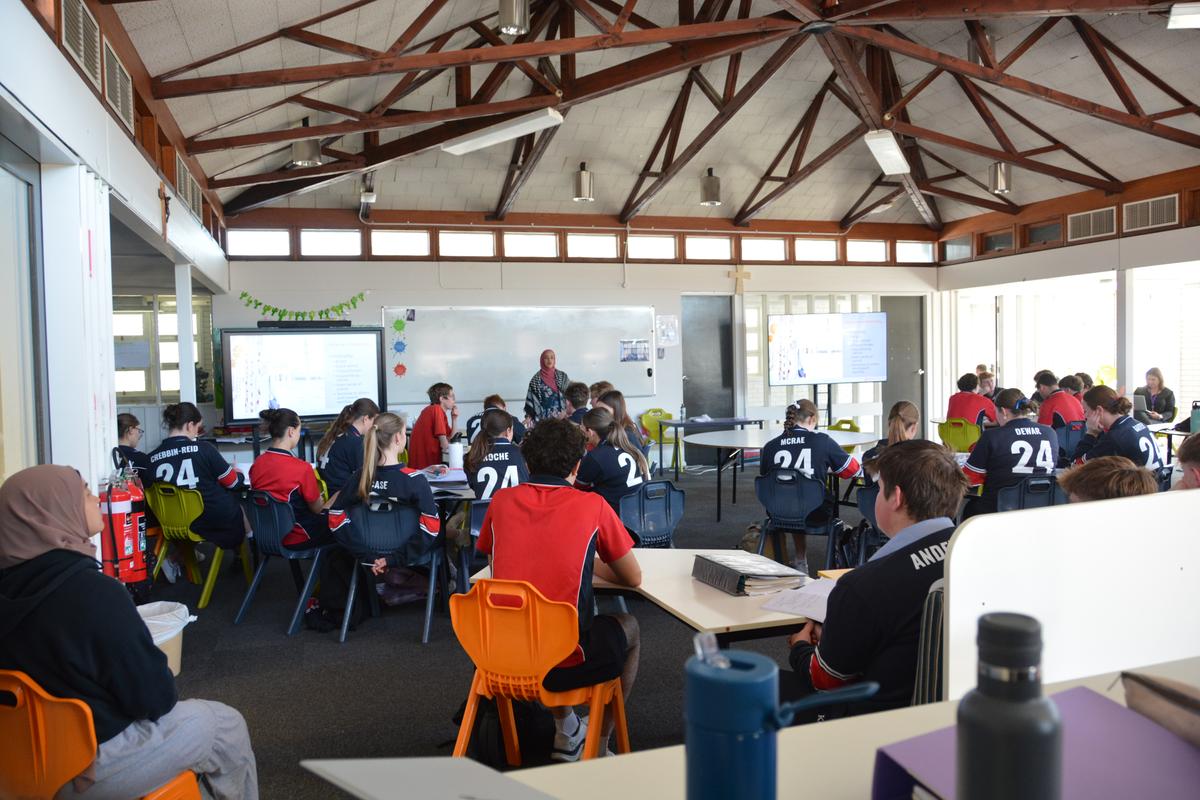
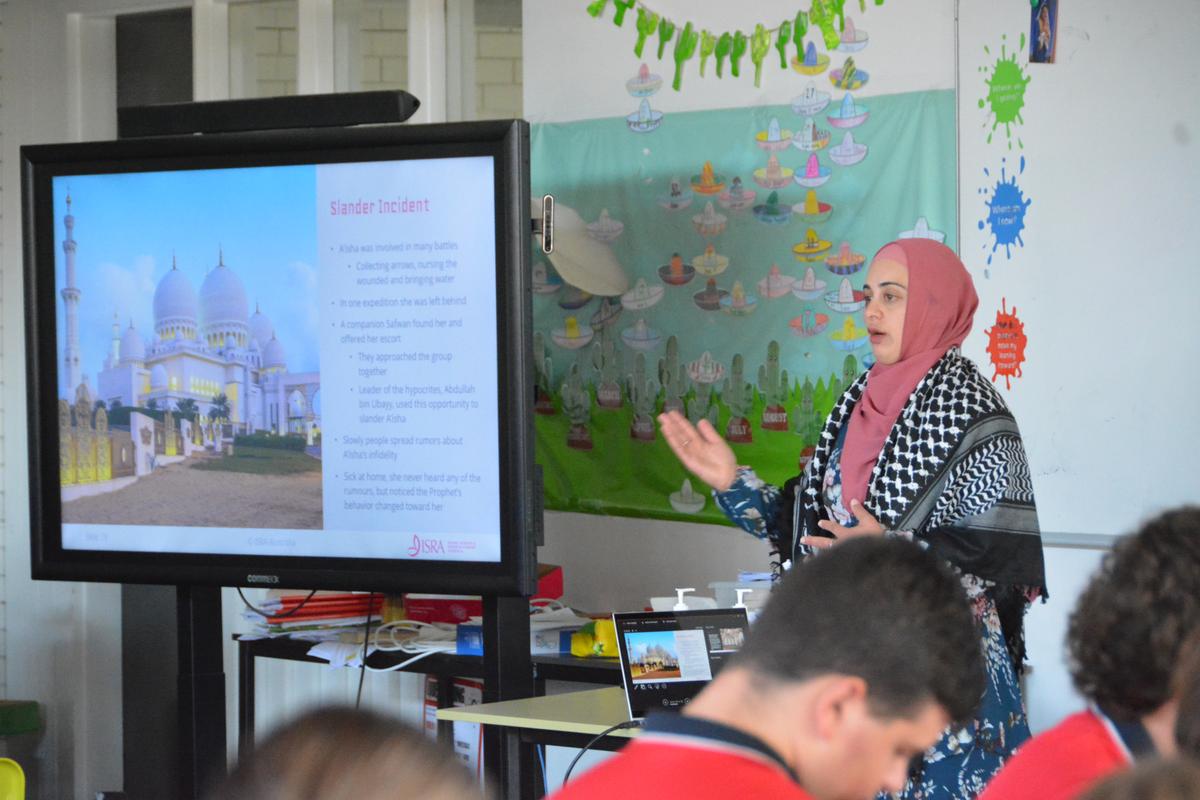
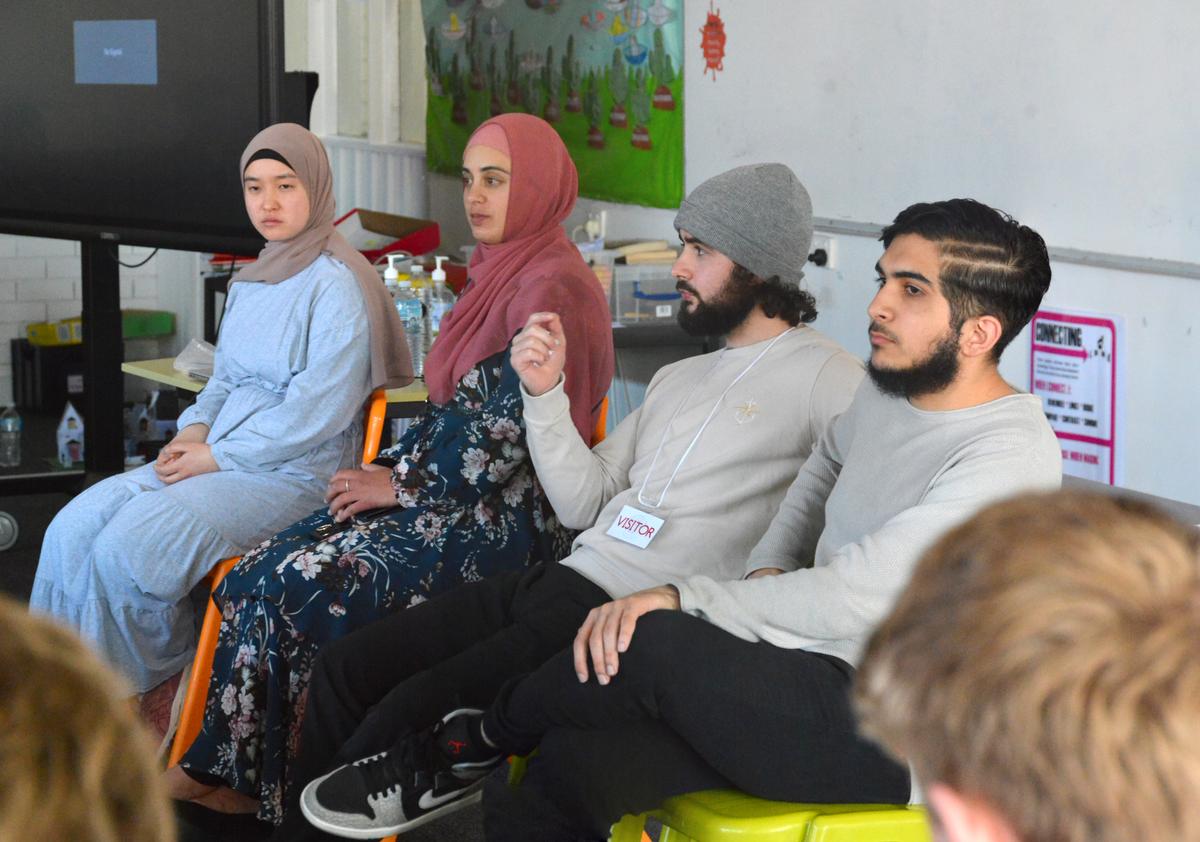



Term 3 has been a very busy time for our students across the school. For Year 12, however, it has been particularly demanding as students completed Trials exams and began preparing with revision of content and refinement of the skills necessary to tackle the HSC. To support our students in Studies of Religion, a team of presenters from the Islamic Science and Research Academy were invited to run a day of workshops on the topics of Hajj, A’ishah and Islamic Environmental Ethics. The depth with which our students engaged in conversations about the content with the four enthusiastic and devout Muslim presenters was palpable. It was clear that the preparation of the cohort with the support of our wonderful team of teachers was nothing short of exceptional. We have every confidence that this cohort has all the tools and knowledge they need to perform at their best in their exam for Studies of Religion. All the best class of 2024!!!
Studies of Religion HSC exam is scheduled for Wednesday, October 30 at 9:25am


Year 10 Reverence For Life
Year 10 is wrapping up a unit exploring the reverence due to human life, particularly in an age of rapid technological progress. In an address to participants of the Symposium On The Theme: ‘Stem Cells: What Future For Therapy? Scientific Aspects And Bioethical Problems’ Pope Benedict XVI said…
Progress becomes true progress only if it serves the human person and if the human person grows: not only in terms of his or her technical power, but also in his or her moral awareness. (Augustinianum Institute, Rome, Italy, 14–16 September 2006)
As part of the mission of a Laudato Si Action School, students have been asked to reflect on how growth in moral awareness is essential to true technological progress. This is a central theme of Pope Francis’ encyclical “Laudato Si” which warns that “when technology disregards the great ethical principles, it ends up considering any practice whatsoever as licit…a technology severed from ethics will not easily be able to limit its own power. (Laudato Si paragraph 136)
The story of the great geneticist Dr Jerome Lejuene is one of many examples from the 20th Century that highlight the struggle to balance technical progress with ethical considerations. Jerome Lejuene’s discovery in 1958 of the chromosomal abnormality that causes Down's Syndrome, Trisomy 21, liberated parents and their children with Downs of terrible discrimination and stigma. Their children were not inherently disordered but suffered from a disease, the cause of which was at least partially known and understood. However, within two decades of this groundbreaking work, the ability to detect Trisomy 21 was used to identify and eliminate children with Down’s Syndrome before they could even be born. Lejuene was persecuted for arguing that scientific and technological progress must not become a means of discriminating against people. He lamented that rather than fighting the disease to heal the patient, his discovery was being used in a way that “made the enormous mistake of fighting for the disease and against the patient”.
This anecdote highlights the moral implications of technological progress. Our work in Year 10 helps us to be clear in our thinking. To be a defender of life like Jerome Lejuene, we need to understand what it is about a human person that gives them inviolable dignity and why there is a moral obligation to protect this dignity from conception until natural death - the full life span of a human person who is made in the image and likeness of God.
As this topic is of such grave importance and there are many aspects that require sensitivity and a nuanced understanding, we invite you to engage in conversation at home about the learning that has taken place in Year 10 RE this term.
Year 9 The New Testament
Following a unit on the Eucharist, Year 9 has embarked on a study of the texts of the New Testament. They will consider the significance and implications of the Christian Claim that God became one with us in Jesus Christ and redeemed us by His death and resurrection. Meanwhile, I am sure you will enjoy these stained glass window artworks by Year 9 students which provide a very edifying reflection on central images and symbolism relating to the Eucharist.


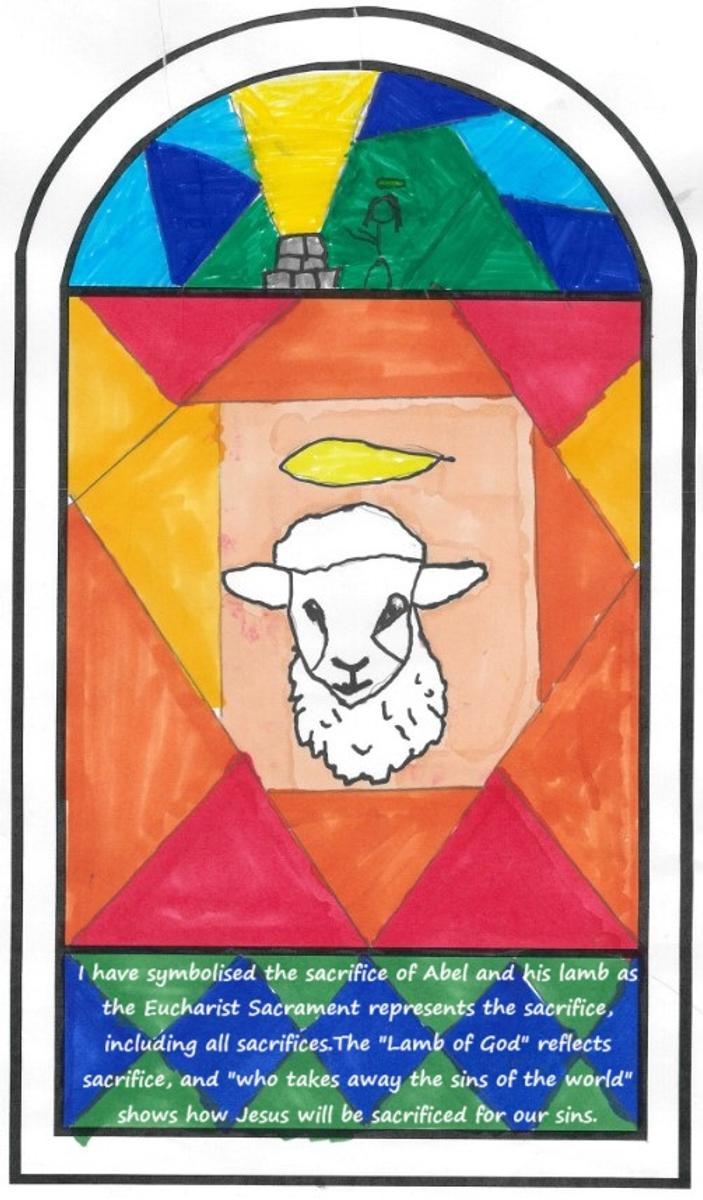
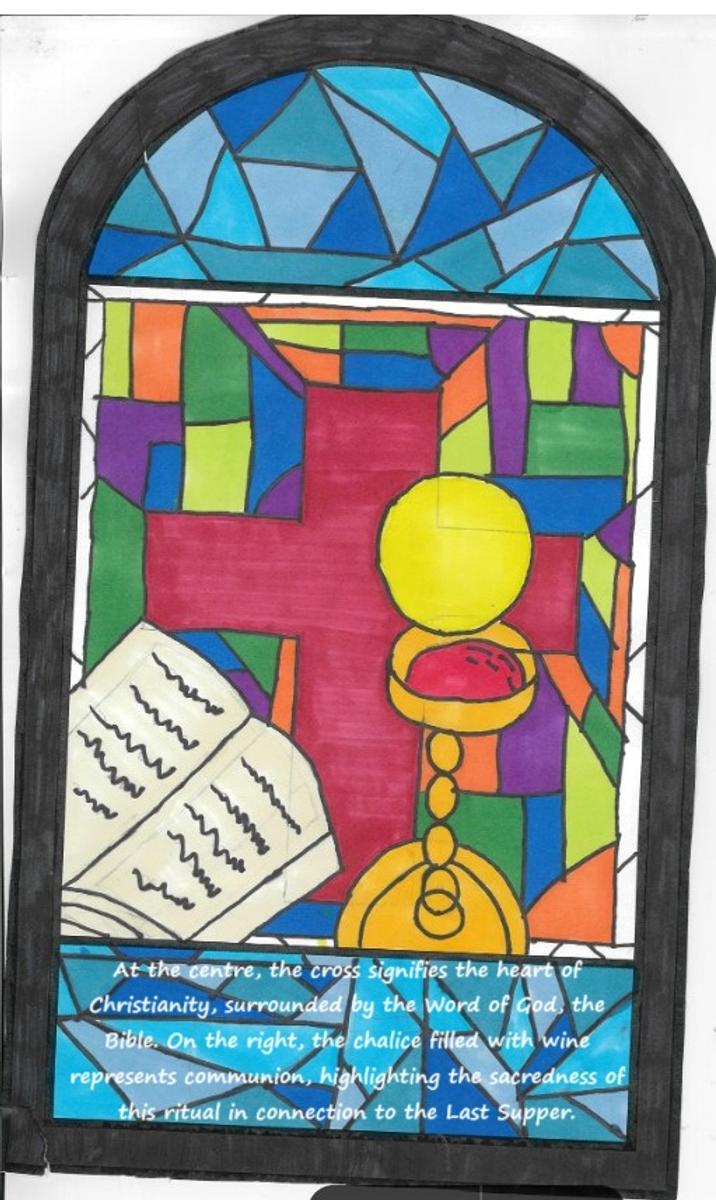
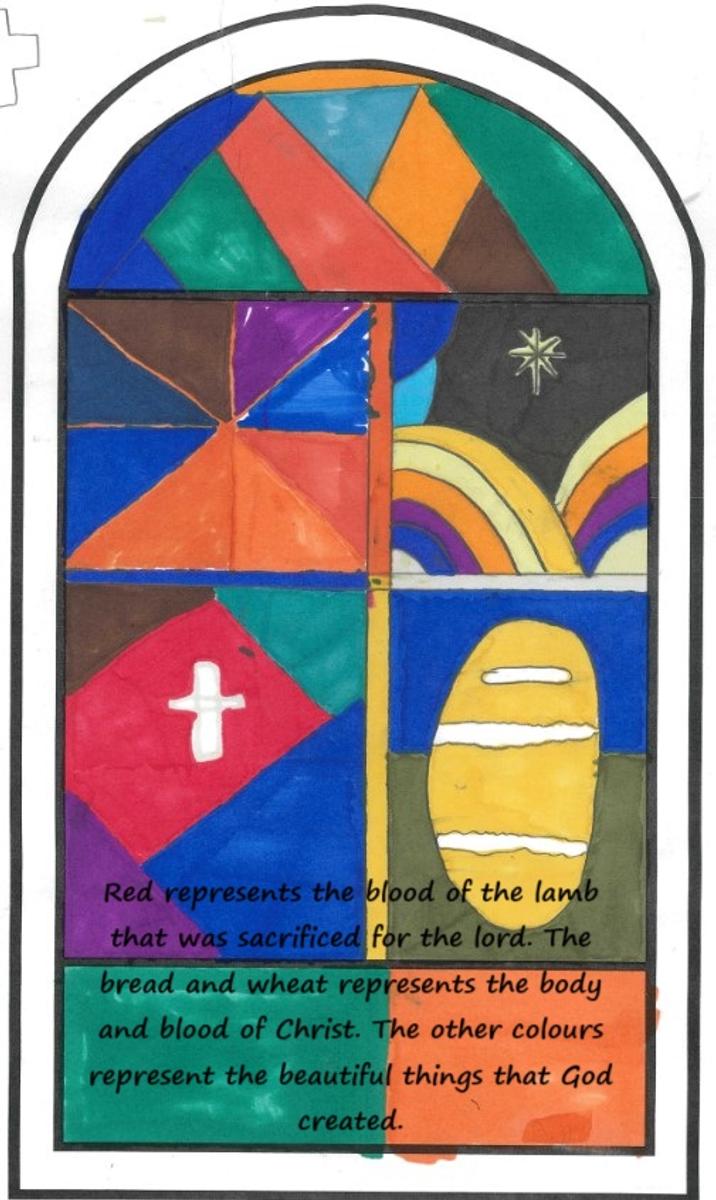
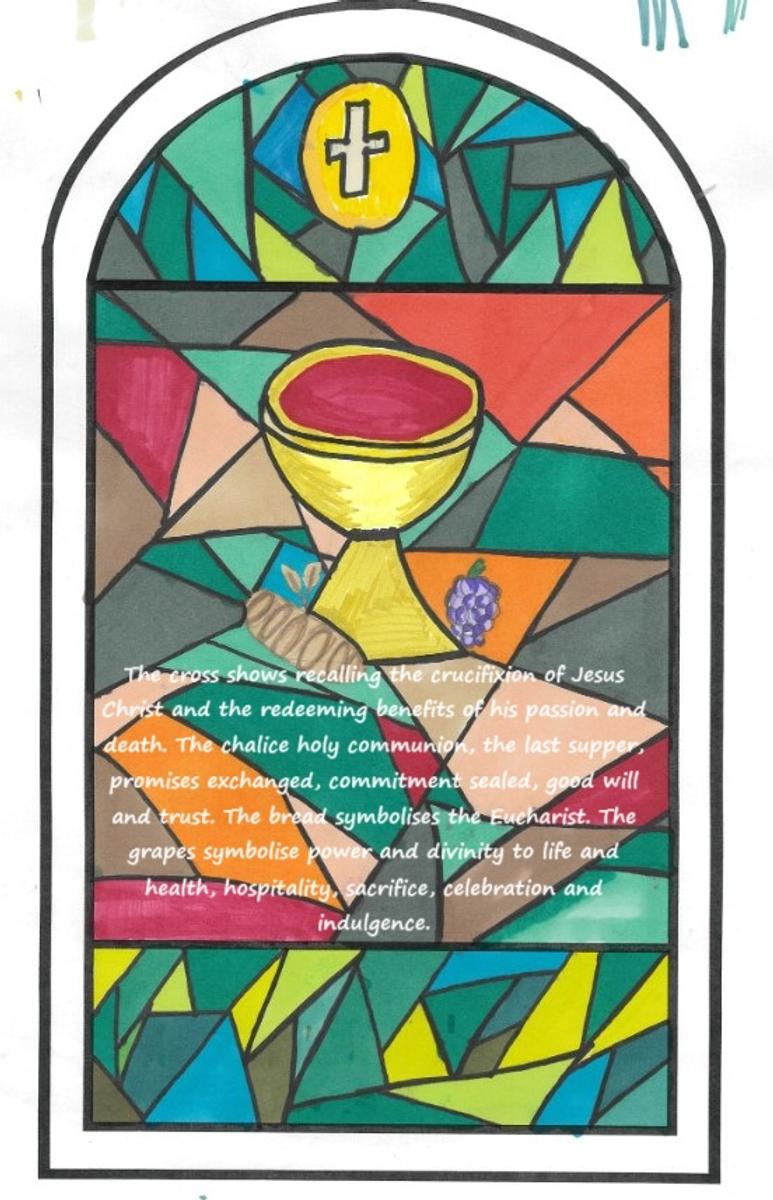
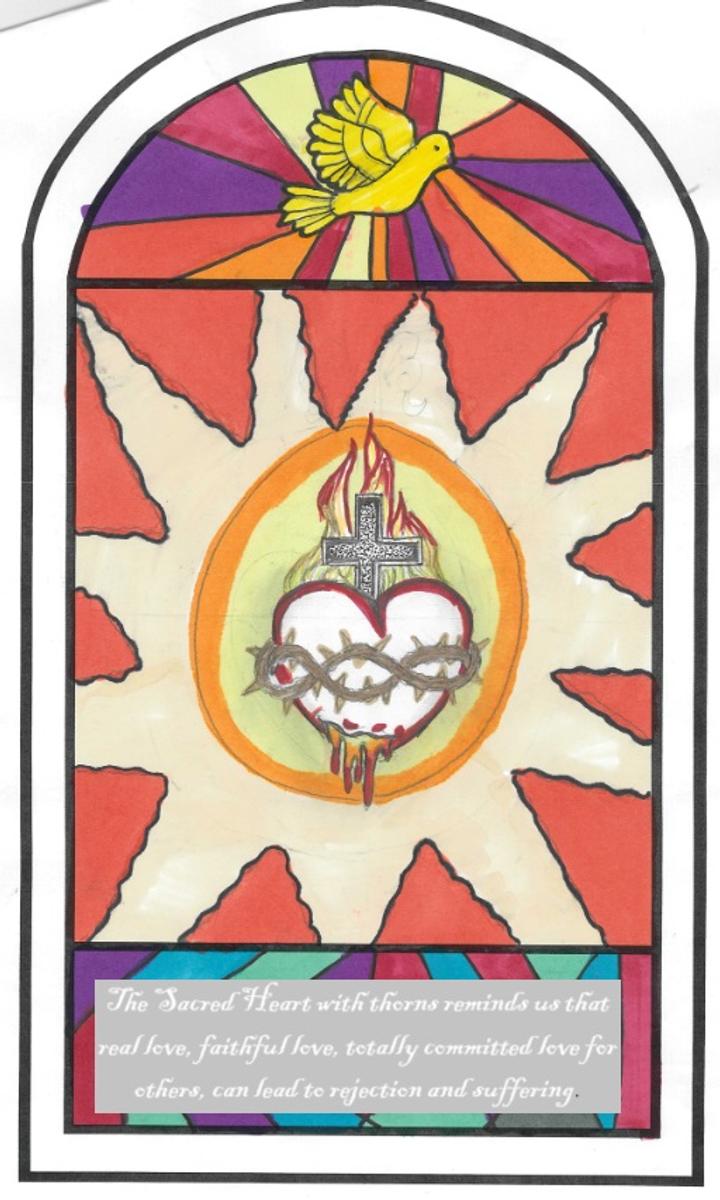
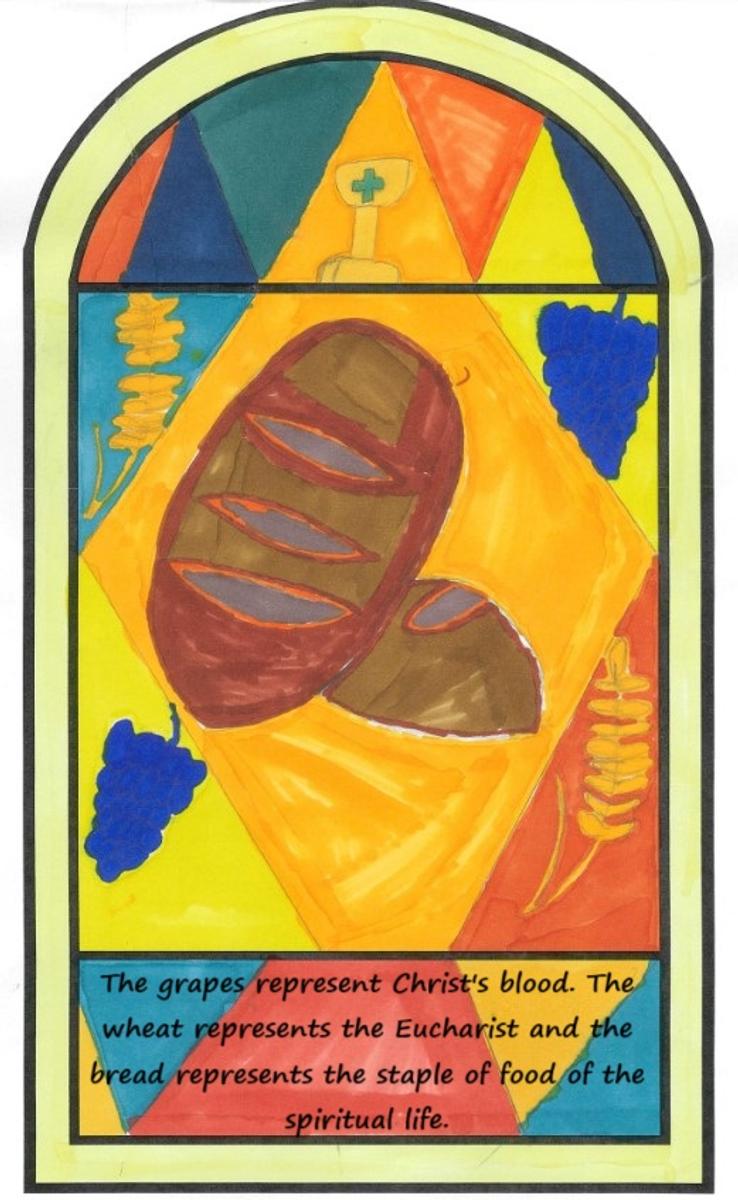










Year 8 Images of God
This term, Year 8 Religion has commenced a unit of work called Images of God in which students will create a Photo Essay as a means of exploring...
On their return to school next term, we have asked students to upload 5-6 photographs to their chromebooks of people, places and or moments that lead them to think of God and His presence in their lives.
Due to our no-phone policy, these photo’s must be uploaded to Chromebooks (either via email or using Google Drive) prior to returning to school.
We thank you in advance for any support you may provide and encourage any conversation about the topic that may arise.
Our personal reflections of God in the world will then lead to investigation of the foundations of the Church’s philosophical considerations about God. The Five Proofs for the existence of God from St Thomas Aquinas help us to understand how we can come to a knowledge of God by the use of our reason. Further reflections on these proofs lead us to appreciate that God is pure spirit, unchanging, eternal, all powerful, all knowing and all good. It is hoped that our initial intuitions will be supported by solid reasoning further strengthening our faith in a God who loves and cares for us.
We thank you for your support in this and look forward to sharing student’s completed photo essays with you next term.
David Chaston | KLA Coordinator - Religious Education